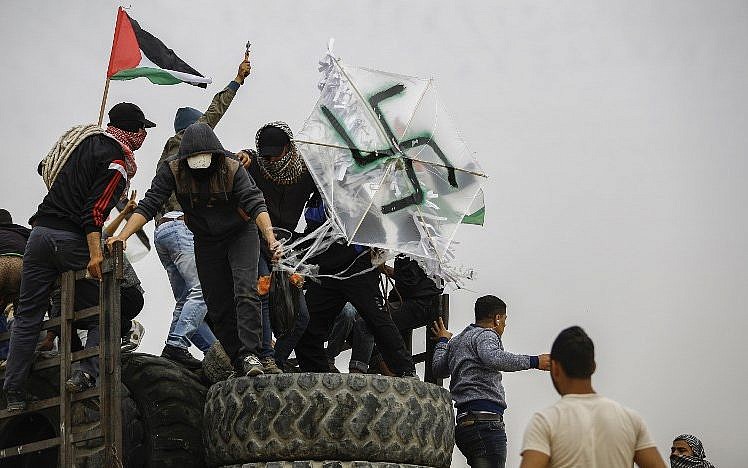Trump’s State Department no longer calls West Bank ‘occupied’ in annual report
The US State Department released its annual report on human rights violations around the world on Friday, and there was at least one discernible difference from past reports: It no longer refers to the West Bank as “occupied.”Liberman hails US decision to drop ‘occupied’ from West Bank terminology
Whereas previous iterations of the Country Reports on Human Rights Practices had a section on “Israel and the Occupied Territories,” this year’s document refers instead to “Israel, Golan Heights, West Bank and Gaza.”
Last December, it was reported that US Ambassador to Israel David Friedman asked the State Department to stop calling the West Bank occupied, which would make a noted departure in US policy.
No indication of any change in that regard had materialized — until now.
In the past, Friedman had made remarks that were rebuffed by Washington as not reflecting official policy. Last September, for instance, he told Israel’s Walla news site he thought “the settlements are part of Israel.” State Dept. Spokesperson Heather Nauert later told reporters his comments marked no shift in the US position. Before his confirmation to the diplomatic role, Friedman was a staunch settlements supporter and columnist for right-wing Israeli publications.
The report released Friday also noted that the final status of Jerusalem, which US President Donald Trump has formally recognized as Israel’s capital while making plans to relocate the US embassy there, was still a matter of talks between both sides.
“On December 6, 2017, the United States recognized Jerusalem as the capital of Israel,” the report said. “It is the position of the United States that the specific boundaries of Israeli sovereignty in Jerusalem are subject to final status negotiations between the parties.”
Most of the rest of the report is similar to prior years, cataloging human rights abuses by by the Israeli Defense Forces, Hamas and the Palestinian Authority.
Defense Minister Avigdor Liberman on Saturday hailed a decision by the US State Department to drop the term “occupied” in a report referring to the West Bank, Gaza Strip, and Golan Heights, saying that the truth was finally being made plain.Abbas: We will continue to fight Trump’s Jerusalem decision
“The lie of the occupied Palestinian territories is being exposed. They say that if you repeat a lie enough, it eventually becomes the truth, but the truth will always be stronger,” Liberman tweeted. “The announcement by the US state department is proof of that.”
Liberman, who as defense minister is responsible for administering the West Bank, was commenting after the US State Department released its annual report on human rights violations around the world on Friday, and no longer refered to the West Bank as “occupied.”
Whereas previous iterations of the Country Reports on Human Rights Practices had a section on “Israel and the Occupied Territories,” this year’s document refers instead to “Israel, Golan Heights, West Bank, and Gaza.”
The Palestinians will not allow US President Donald Trump or anyone else to say that Jerusalem is the capital of Israel, Palestinian Authority President Mahmoud Abbas said on Saturday.
The Palestinians, Abbas said, will continue to fight Trump’s decision to recognise Jerusalem as Israel’s capital as they have been doing for the past few months.
“The Palestinians will not allow any country to move its embassy to Jerusalem before there’s a solution [to the Israeli-Palestinian conflict],” Abbas said, during a meeting with Arab delegates attending a conference in Ramallah on laboratory medicine.
On May 14, the US will hold an official dedication ceremony for the US embassy in Jerusalem’s Arnona neighborhood.
Trump, who formally recognized Jerusalem as Israel’s capital and announced the embassy relocation on December 6, had mulled attending the inauguration but reportedly decided against it.
So far, the US and Guatemala are the only two countries that have formally announced such a move, but Israel says other countries are also mulling moving their missions.
Abbas told the delegates that he hopes that their next conference will be held in Jerusalem, “our eternal capital.”



































